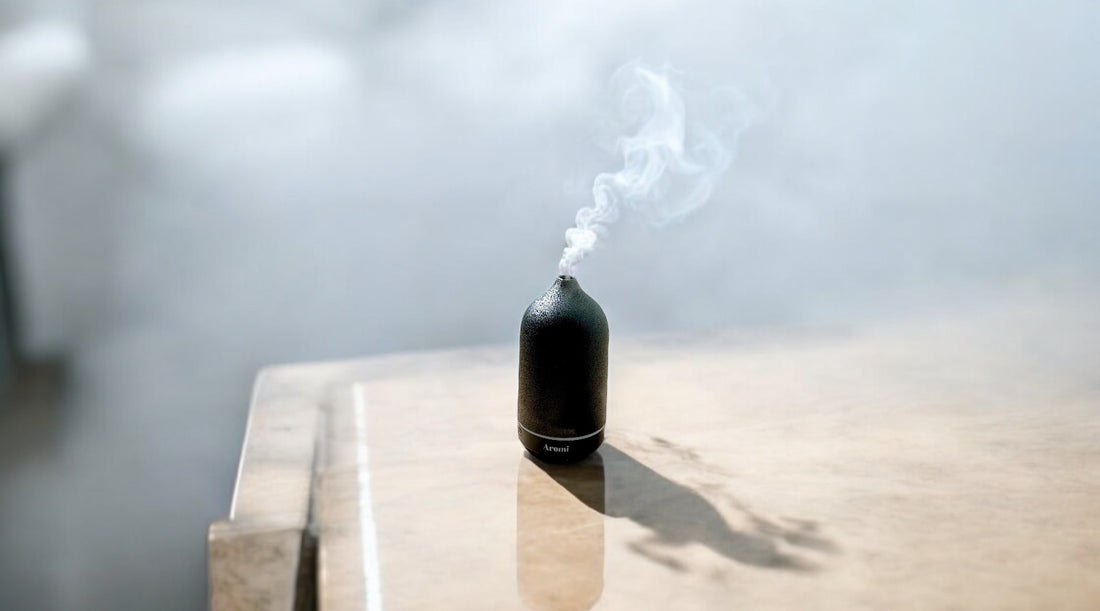
An Introduction to Essential Oils: Bottled Power of Nature
Share
Essential oils have fascinated people for centuries with their rich aromas and therapeutic properties. These concentrated plant essences are used in a variety of fields, from aromatherapy to skin care and medicine. But what exactly are essential oils and how can they improve your well-being? Here we provide a basic introduction to essential oils, their uses and how you can integrate them into your daily life.
What are Essential Oils?
Essential oils are concentrated extracts obtained from various parts of plants, including flowers, leaves, bark, and roots. Through distillation or cold pressing, the volatile aromatic compounds that give each oil its unique scent and properties are extracted. Although they are "oils" in name, they are not greasy like vegetable oils but light and quickly evaporating.
How Do Essential Oils Work?
Essential oils affect the body and mind through inhalation or skin absorption. When inhaled, they stimulate the sense of smell and send signals to the brain, especially to areas that control emotions and memories. This can lead to changes in mood and mental state. In case of skin contact, the oils are absorbed through the skin and can have direct physiological effects, such as pain relief or anti-inflammatory properties.
Common areas of use
1. Aromatherapy
Aromatherapy is one of the most popular uses for essential oils. By using a diffuser, you can spread the scent of the oil in the room and create a relaxing or uplifting atmosphere. For example, lavender oil can help calm the mind and promote sleep, while citrus oils such as orange and lemon can boost energy levels and improve mood.
2. Skin care and Beauty
Essential oils are often used in skin care products thanks to their antibacterial, anti-inflammatory and antioxidant properties. Aloe vera oil is well known for its ability to treat acne, while rose oil is popular for its anti-aging properties. Add a few drops to your daily moisturizer or create your own DIY skin care product.
3. Household cleaning
Many essential oils have natural antimicrobial properties, making them ideal for use in household cleaning. Eucalyptus and lemon oils can be used to create effective, natural cleaning solutions that are free of harmful chemicals.
4. Medical Use
Essential oils have also been used in traditional medicine to treat a variety of conditions. Peppermint oil can relieve headaches and digestive problems, while eucalyptus oil can help open the airways for colds and flu.
Safety and Precautions
Despite their many benefits, essential oils should be used with caution. They are highly concentrated and should usually be diluted with a carrier oil, such as coconut or jojoba oil, before applying to the skin. Some oils can cause allergic reactions or skin irritation, so it is important to do a patch test before full use. In addition, certain oils should be avoided during pregnancy or with specific health conditions.
How to Choose Qualitative Essential Oils?
When purchasing essential oils, it is important to choose high quality products. Here are some tips:
- Check for purity: The oils should be 100% pure, without additives or synthetic ingredients.
- Organic: Choose organic oils whenever possible to avoid pesticides and other chemicals.
Packaging: Essential oils should be stored in dark glass bottles to protect them from light and oxidation.
Conclusion
Essential oils offer a natural and versatile solution to improve your physical and mental well-being. By understanding their properties and uses, you can begin to integrate these powerful plant essences into your daily life. Whether you're looking for relaxation, improved skin health, or natural cleaning options, there's an essential oil that can help you along the way. Explore and discover how the scents of nature can enrich your life!
